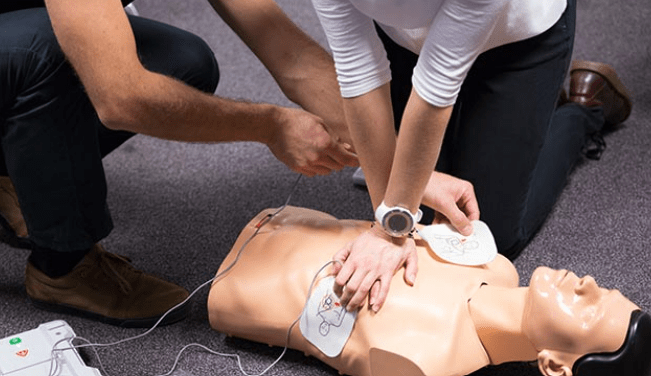Why CPR Is Basic Knowledge Everyone Needs to Understand
Every second counts in a life-threatening emergency. Whether it’s a heart attack, drowning, or sudden cardiac arrest, immediate action can mean the difference between life and death. This is where CPR (Cardiopulmonary Resuscitation) plays a crucial role. Despite its importance, many people are unaware of how to perform CPR—or why it matters so much.
What Is CPR?
CPR is an emergency procedure that combines chest compressions and rescue breaths to manually preserve brain function and blood circulation until professional medical help arrives. It’s used when someone’s heart has stopped beating or they’re not breathing properly.
Why CPR Is Essential Knowledge
1. CPR Can Save Lives
Cardiac arrest can happen anywhere—at home, in public places, or at work. Performing CPR immediately after someone collapses can double or even triple their chance of survival. According to the American Heart Association, 70% of cardiac arrests occur at home, which means you might need to save a loved one.
2. Emergencies Are Unpredictable
You never know when you’ll be in a situation where CPR is needed. By knowing how to respond, you won’t freeze in panic. You’ll be ready to take control and possibly save a life before professional help arrives.
3. It Buys Crucial Time
When the heart stops, the brain can begin to suffer damage in just 4 to 6 minutes due to lack of oxygen. Paramedics usually take 8–10 minutes or more to arrive, so CPR bridges that critical time gap and keeps vital organs functioning.
4. CPR Is Easy to Learn
Basic CPR can be learned in just a few hours through certified training programs or even online courses. Many organizations offer hands-on sessions with dummies and instructors, making the process easy, practical, and accessible for all ages.
5. Empowers You to Help
CPR knowledge gives you the confidence to step in and act during emergencies. This empowers individuals to become active first responders in their community, workplace, or family.
When Should You Use CPR?
CPR should be administered if someone:
- Collapses suddenly
- Is unresponsive
- Is not breathing or has abnormal breathing (like gasping)
- Has no pulse
In such situations:
- Call emergency services immediately
- Begin chest compressions at the center of the chest
- If trained, provide rescue breaths
The Chain of Survival
To increase the chances of survival, the American Heart Association outlines the “Chain of Survival”:
- Early recognition and call for help
- Early CPR with chest compressions
- Rapid defibrillation (AED)
- Advanced emergency care
- Post-cardiac arrest care
Knowing CPR puts you at the heart of this chain.
Conclusion
CPR isn’t just for healthcare professionals—it’s a life-saving skill everyone should have. With just a bit of training, you can become a vital link in the chain of survival. By understanding CPR, you’re not just gaining knowledge—you’re becoming someone who can make a real difference when it matters most.


